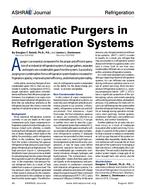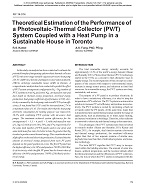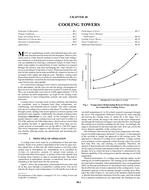A critical need in the design procedure of closed-loop, ground-source heat pumps (GSHPs) is an accurate knowledge of the thermal properties of soil/rock formations. These properties can be estimated in the field by installing and imposing a thermal load on a ground heat exchanger at the site. Recent developments have improved the capability of predicting thermal properties from the resulting temperature change. An additional benefit is that drilling conditions, determined during the installation of the test heat exchanger, will improve the capability of contractors to estimate project costs. This paper discusses several of the issues and procedures in the development of field tests for thermal property determination. It also addresses the impact of thermal property measurement error upon the resulting ground heat exchanger design, loop operating temperatures, equipment capacity, and system efficiency. A design program that has been evaluated (Thorton et al. 1997) was used to predict results for a 100-ton (351 kW) office building. A 10% variation in thermal conductivity and diffusivity resulted in a 4.5% to 5.8% error in design length, a 1% change in cooling capacity, a +2°F (1°C) variation in loop temperature, a 0.7% change in heating capacity, a 2% variation in cooling EER, and no change in heating COP.
Units: Dual
Citation: Symposium, ASHRAE Transactions, vol. 106, pt. 1
Product Details
- Published:
- 2000
- Number of Pages:
- 5
- File Size:
- 1 file , 480 KB
- Product Code(s):
- D-7385


